I started my first membership website in 2004. I knew at the time that I wanted to have an online business that gave me a regular, predictable income and let me work from home. As you can probably imagine, back then, it wasn’t so easy, and software like MemberPress wasn’t available.
I had to hire programmers and even had to attend an interview at my bank and make a case as to why I should be allowed to take credit card payments online!
After many weeks of frustration and hard work, I launched my membership website www.howtonetwork.com. But it turned out that creating the membership website was the easy part. Launching and then growing the site, going up against big hitters with huge budgets, keeping my members engaged, and bringing in new members was the hard part.
Over the last 17 years, I’ve made many mistakes, but I've also learned a lot. I’ve been coached by, and worked alongside, many other membership websites owners, and I’ve boiled down what they all seem to have in common. I can honestly say that it all comes down to habits.
Doing little things every day will reap big rewards over time. So, here’s my take on what habits it takes to make a success of your online membership business.
#1 – They Let Go (With a System)

The famous entrepreneur Brad Sugars once said that the only sane reason to build a business is to sell it or have it run without you. Before I read these words, I was slowly killing myself. For the first year that I was in business, I worked 12-hour days without a single day off. My health suffered, as did my family life and friendships.
Most membership website builders (let’s call ourselves small business owners) can’t let go of tasks because others keep messing things up, making even more work in the long run. Just ask my air conditioning engineer who had to work the entire weekend fixing mistakes made by one of his employees.
So how can we let go of tasks without that happening?
I found the answer in the book The E-Myth by Michael Gerber. In it, he explains how to write systems and procedures for others to follow. The person follows your systems and gets the same results. If something happens that isn’t covered in your procedures (let’s call it your manual of operations), you add to them. If a person breaches this, you can point them back to the manual or take appropriate action.
A manual of operations is how McDonald’s can hire teenagers with zero previous experience and turn out the same product every time. Ray Crock bought the system from the McDonald brothers. He wasn’t so interested in the burgers.
Your systems can be videos, workbooks, PowerPoint presentations, or whatever you want. I give my virtual team access to my systems when they start to work with me, and I remove their access if they leave for any reason.
Start off with small tasks, such as answering helpdesk tickets, and go from there.
#2 – They Track Vital Statistics

If you ever visit the doctor for any reason, you may well find they take your temperature, weigh you, and check your blood pressure, even if you go in for something seemingly unrelated to these measurements. Anything outside the usual results for your age might raise a red flag.
Even though everything may feel normal to you, there could be a serious issue about to occur, which the readings will reveal. Take my super-fit friend who was a trained cage fighter. He kept falling ill with colds. A visit to the doctor resulted in him being rushed to the hospital with a heart problem.
The same goes for your membership website.
Your site's vital statistics include the number of website visitors, email newsletter sign-ups, new joiners, expiring members, cancellations, etc. As time goes on, you'll get a baseline of what's “normal”. Google sheets let you easily create graphs and pie charts so you can see it all visually. Any result outside your baseline will warrant further investigation.
For example, one day I noticed that there was a higher-than-normal number of overnight failed payments. I quickly found that the payment processor had made a change, and my website needed an urgent code update. If I’d not tracked statistics, I would have gotten to the end of the month with all my members unsubscribed due to failed payments.
Tracking your statistics will also help you find what works for your niche, so you can keep doing more of whatever that is. if you find that a YouTube video you posted gets 20% more subscribers than average, then you can consider it a marketing tool to invest more time into.
Further Reading – Drilling Down: Turning Customer Data into Profits with a Spreadsheet by Jim Novo
#3 – They're Always Learning

In the book The 7 Habits of Highly Effective People by Steven Covey, he refers to this as “Sharpening the Saw”.
When I was learning how to grow my first membership website, I heard about a seminar being run in Boston by my membership website software company. I lived in the UK at the time, but I understood the value of learning.
I’m so glad I went. Every table of delegates included everything from people who were just starting out to people running multimillion-dollar membership websites on every topic – stock trading to knitting patterns.
If these people thought they needed to learn, then I surely did. After several conversations, I found that the most successful of the delegates were reading the same books, listening to the same podcasts, and using many of the same marketing techniques to grow their websites.
I’m always studying new IT technology, taking exams, or renewing expired qualifications. For example, I’m currently studying new marketing ideas and SEO. Core marketing principles never change, but how we market our businesses, especially online, seems to change on a weekly basis. You have to be able to change if you are to thrive and survive.
Further Reading – The Slight Edge (Turning Simple Disciplines into Massive Success and Happiness) by Jeff Olson
#4 – They Help Others

Every successful business person I know is always looking for ways to help others. They answer forum posts, post helpful videos, respond to emails, and personally call customers if there's a problem.
Helping others comes back to you many times over and builds trust and credibility among your customers and potential customers. If you have staff, they will emulate your behavior and also seek to help others.
Part of helping others is looking for a win-win in every situation. If you can’t get that, then aim for a win-lose in your customer's favor. If one of your products arrives damaged, then send another. If there's a mistake with their membership fee, give them the next month free.
One happy customer will tell ten friends. An unhappy customer will tell hundreds.
Further Reading – Give and Take: Why Helping Others Drives Our Success by Adam Grant
#5 – They Plan

Ask 99% of people if they have goals or a plan, and most will answer “no”. In fact, many will laugh at the very idea of setting a goal.
But goals help you grow. They trigger the reticular activating system (RAS) in your brain. Your RAS takes what you see or hear and creates a filter (like when you buy a car and suddenly see many other people driving the same model). You begin to spot activities and opportunities you otherwise would never have seen.
Successful membership website owners have long-term goals, which they break down into shorter-term goals and action steps, and they review these weekly on the same day (usually Sunday).
Further Reading – Goals! by Brian Tracy
#6 – They Innovate

Not long after I started my first membership website, a competitor copied my business model. He duplicated everything I did, including the price and marketing strategy. He then started to undercut me.
I panicked at first, but then I forced myself to reread my favorite marketing books to innovate and really make my membership website stand out from the competition. I offered a better guarantee and added features that others either didn’t, wouldn’t, or couldn’t.
Remember: Price is only ever an issue if you are selling the same thing everyone else is.
Further Reading – Purple Cow: Transform Your Business by Being Remarkable by Seth Godin
#7 – They Lead

Whether you have one part-time assistant, a whole staff, or just one member on your website, you're a leader. You need to set the example for behavior, and practice what you preach. After all, nobody will go to a gym if the owner is overweight.
Leaders set the tone for the business. Everything they say and do is part of their brand and is reflected in their website, products, and support. The good news is that leadership can be learned. And leaders are always learning. Read books written by leaders such as Jocko Willink, Winston Churchill, and anybody else you admire.
Further Reading – The 21 Irrefutable Laws of Leadership: Follow Them and People Will Follow You by John C. Maxwell
The Takeaway
You might be getting ready change from IT-guy to entrepreneur, or you might have three membership sites running like well-oiled machines as we speak. Wherever you are in your journey, it's important to keep focused on those characteristics that will help you succeed.
When it comes to being a membership site owner, remember these seven key ingredients, and keep working!
- Learn to let go
- Track important statistic
- Always be learning
- Find ways to help others
- Plan and set goals
- Don't get discouraged, innovate!
- Be a leader
If you have any questions for Paul, ask away in the comments section below!
If you liked this article, be sure to follow us on Facebook, Twitter, Instagram, and LinkedIn! And don't forget to subscribe in the box.













I really loved this article. It’s hard for me to read, but this one grabbed my attention. Kudos!
I am starting a membership website. I have never run a membership site, but as an IT/Web Dev & Designer I can build one. That’s the easy part, right? 😉
I am looking to you to consult with on my new project. I hope that you are available and willing. This membership site is in the cancer space and is a passion project to say the least.
Please let me know if we can connect.
Cheers!
Richard